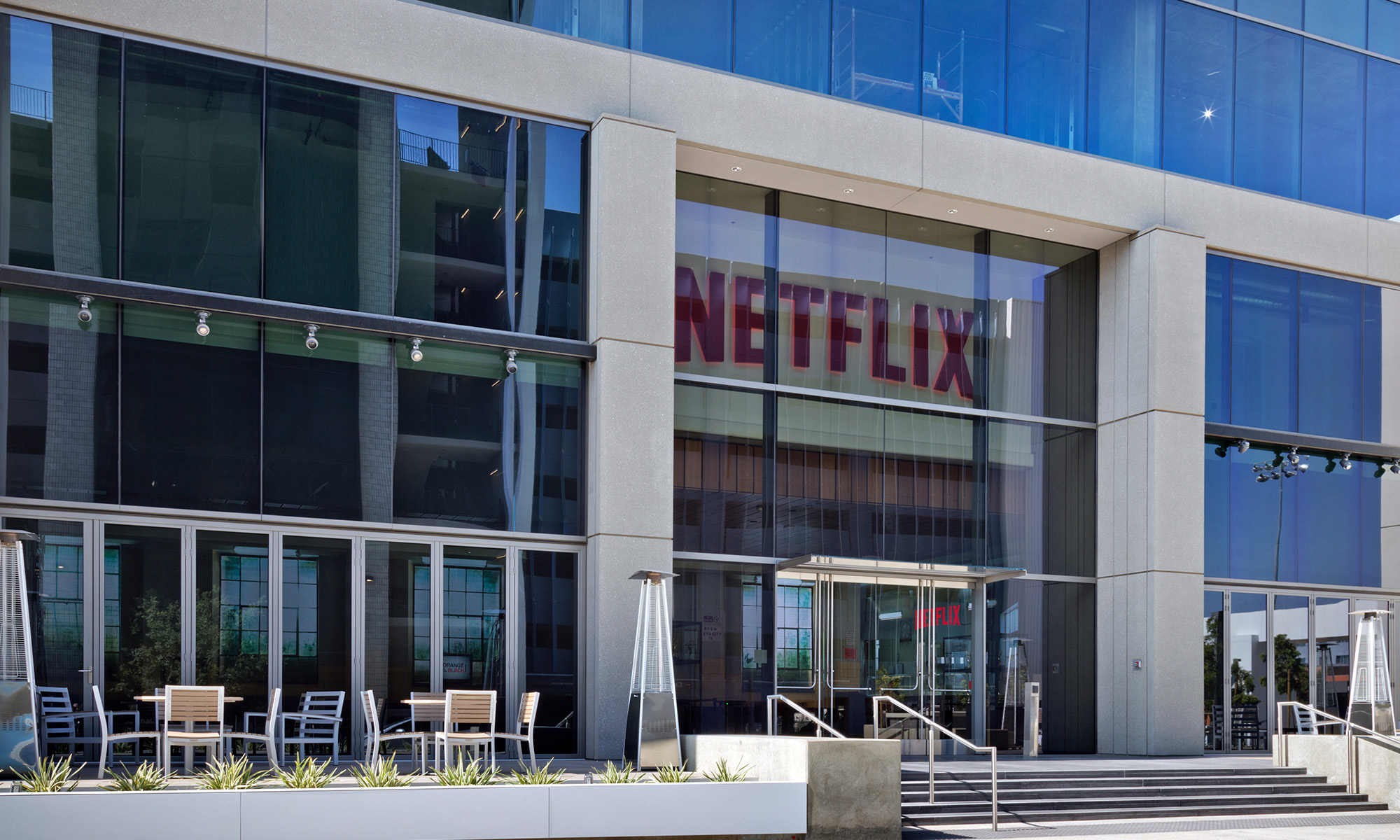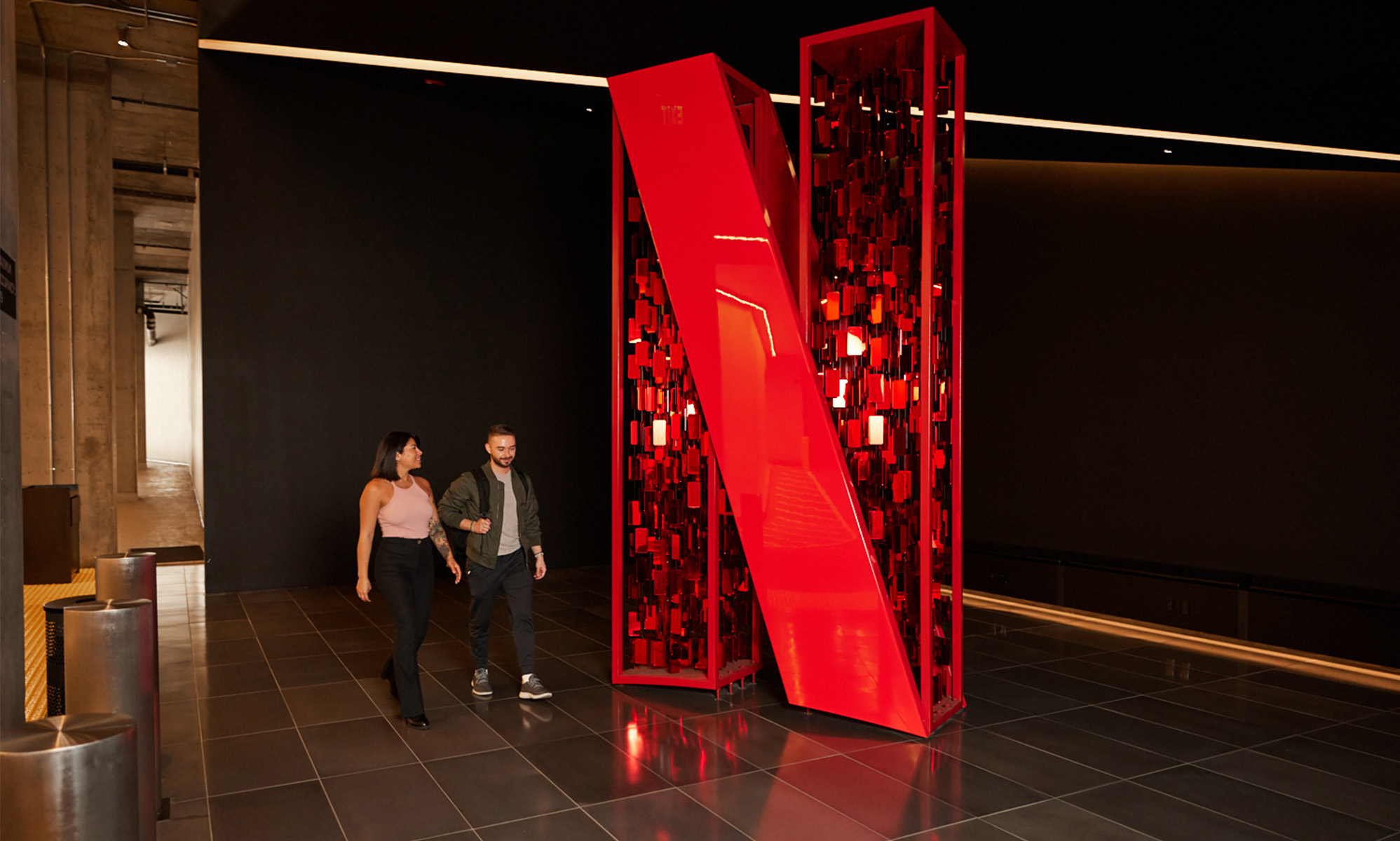
Would you sell a content deal to this man? Netflix CEO Reed Hastings, photo courtesy of Netflix.
Netflix (NFLX +3.17%) is a fast-growing company where every new subscriber adds to the bottom line in a big way. If you build a great service, the subscribers will come. When they come, you can afford to build and buy even more and better content. CEO Reed Hastings calls this a "virtuous cycle" that's driving subscriber growth higher.
But not everyone agrees. Many critics would say that Netflix grew crazy fast in the first few years of streaming services because there was no competition to speak of. Not only did the company lack competition for subscriber eyeballs and dollars, but there was nobody else bidding against Netflix on new content deals.
These days, Amazon.com (AMZN +2.12%) takes streaming services seriously. Hulu came back from the auction block with $750 million in fresh capital and a commitment to produce 20 original shows next year. Verizon (VZ +0.15%) teamed up with Outerwall (OUTR +0.00%) to create a brand-new rival in Redbox Instant, focused on fresher content than any of the others. Even Google (GOOG 0.73%) wants to break into the same streaming content space with a heavy emphasis on original YouTube content.
Sit all of these rivals down at the negotiating table for the next hot show, and what happens? Prices skyrocket! No more freebies for Netflix! The model crumbles to dust as content costs suddenly rise faster than the subscriber counts. And then it's bye-bye, virtuous cycle, as Netflix must tighten its belt or raise service prices to make up for the higher costs.
That's all good if content producers only cared about payments up front. Some of these rivals have a lot more cash on hand than Netflix, and should be able to win any bid they want. I'm looking at you, Google and Amazon. Maybe even Verizon, if the telecom is serious about its media service push.
But then you don't understand Hollywood.
It's not all about the up-front dollars. It's also about exposure. And that's a nuance that will help Netflix make up for a lot of the rising rivalry's bidding action.
A hit producer has a hot new concept. Maybe it's a teenage love story focused on cheerleading and zombies. Amazon steps in and offers a $30 million deal for 13 episodes. "Full creative freedom, let's milk these trends while they're hot!" says CEO Jeff Bezos.
Hulu counters with the same money and a premium marketing package. Suddenly, Doctor Hotshot is leaning in a new direction. Until Redbox trumps that bid with $40 million and a tie-in with Verizon's next tablet launch. More money and more exposure -- what's not to love?
And that's where Netflix enters the picture.

How about this man and his 37 million army of multinational customers? Chief Content Officer Ted Sarandos, photo courtesy of Netflix.
Content guru Ted Sarandos wields 30 million American customers and more than 7 million overseas. Both numbers are expected to grow substantially over the next few years, particularly the international figure. Give CheerZombies to Netflix, and you'll address about 10 times the viewership of an Amazon or Hulu option. The gap is even larger to Redbox, and who thinks of YouTube as a serious venue for professionally produced content these days?
Nine times out of 10, Doctor Hotshot will give Netflix a discounted price in return for a much larger audience. It would be both shortsighted and ridiculous not to do it, assuming that the producer wants to build a sustainable business of his own. What good is a big payday if nobody's watching your lovingly created content? That's how you build a one-hit wonder, not a franchise or a legend.
It doesn't hurt that Netflix sees its original content bets as long-term assets. They don't need to be overnight sensations, like broadcast or cable shows do. Instead, they're allowed to build an audience for years. The payoff for a large content investment isn't immediate, but a long-term, brand-building exercise.
So in this fictional example, I'll bet Netflix walks away with a $30million-$35 million deal thanks to its massive scale. Netflix's real business moat is not in its technology (which it freely shares with anyone who asks) and not in its content catalog either (which anyone can build, given enough money to throw at the problem).
No, the moat is about 37 million subscribers wide and took years to build.
As the customer count continues to grow, so does Netflix's pull at the negotiating table. The company won't win every deal it wants, because sometimes an opponent will be desperate enough to pay a huge premium for its lack of market size. That's a bonus for the content owner on the other side of the table. Netflix will just walk away and put its calculated budget to good use somewhere else.
"Hey, Reed, I hear Captain Silverscreen is shopping his 'mermaids on motorcycles' concept. My data shows it could be worth $25 million."
"OK, Ted. Let's go snipe at another auction."









